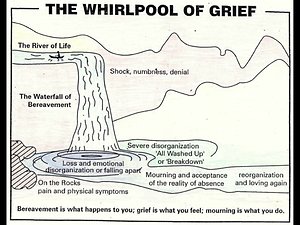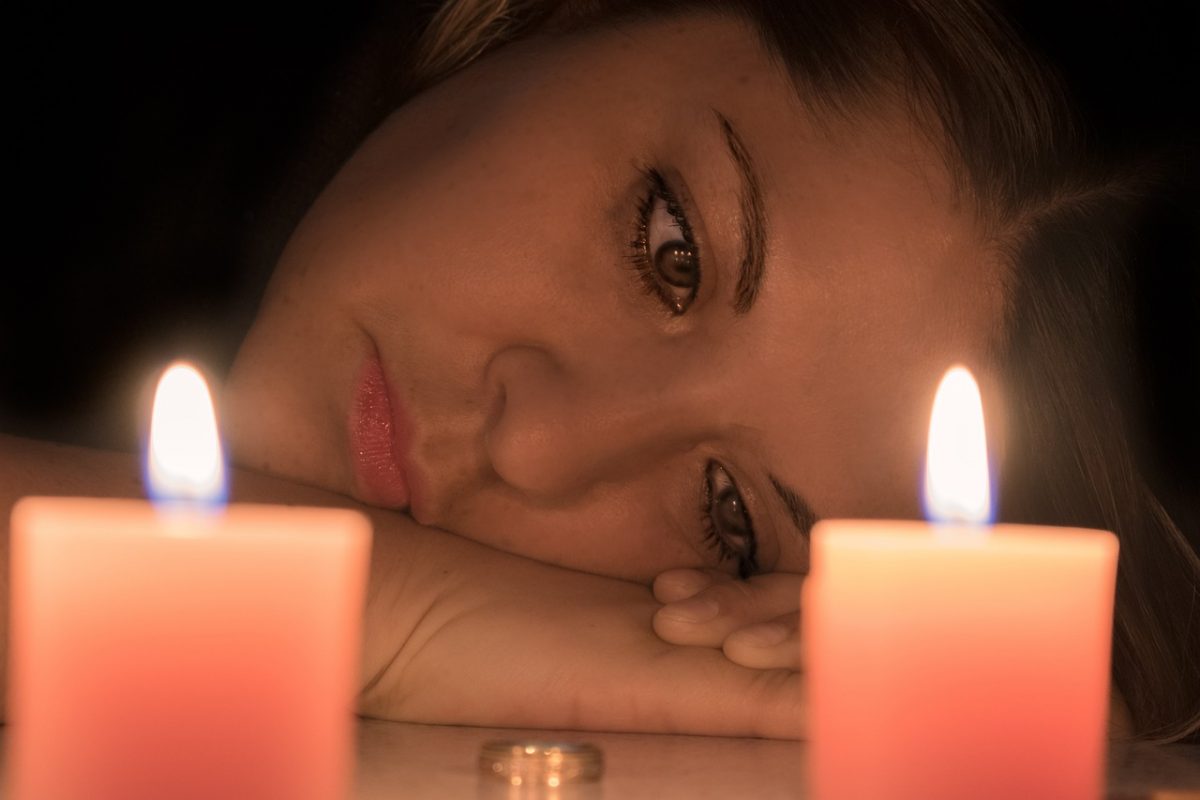As a counsellor in Beaconsfield, I’ve worked with many people, in person and online, who describe their grief as overwhelming and unpredictable. One moment they’re coping well, and the next they’re suddenly overcome with emotion. If this sounds familiar, you might find comfort in understanding the “Whirlpool of Grief” concept developed by Dr. Richard Wilson.
Picture your life before loss as a river, flowing steadily forward with its normal ups and downs. Then a significant loss occurs—perhaps the death of someone dear to you—and suddenly you find yourself pulled into a whirlpool. This powerful metaphor helps explain why grief can feel so chaotic and overwhelming.
In Wilson’s “River of Life” illustration, the river represents your life before bereavement, while the whirlpool symbolises the loss and emotional turmoil that follows. Within this whirlpool, you might experience a range of intense feelings: profound sadness, anger, guilt, confusion, and sometimes even unexpected moments of peace.
What makes grief particularly challenging is its unpredictable nature. Just when you think you’re making progress and moving toward the edge of the whirlpool, something—a memory, a photograph, an anniversary—can pull you back toward the centre. This isn’t a sign that you’re grieving “wrong” or failing to move forward; it’s simply part of the natural process.
Most people eventually find their way out of the whirlpool and back into the river of life, but the river often looks different afterwards. Your experience has changed you, and you carry your loss with you as you continue your journey. The goal isn’t to “get over” your grief but to learn to integrate it into your life in a meaningful way.
Throughout this process, having support can make a significant difference. As a bereavement counsellor, I can help you navigate these turbulent waters. Together, we can develop strategies to help you cope with overwhelming moments and gradually find your way back to a sense of stability.
Remember, grief doesn’t follow a straight line or a fixed timeline. Your journey through the whirlpool is uniquely yours, with its own rhythm and pace. But you don’t have to face it alone.
If you’re struggling with grief and feeling caught in its whirlpool, I invite you to reach out for support. Together, we can work through your loss, honouring your feelings while helping you find a path toward healing. Contact me for an initial consultation, and take that first step toward finding your way through the whirlpool of grief.


